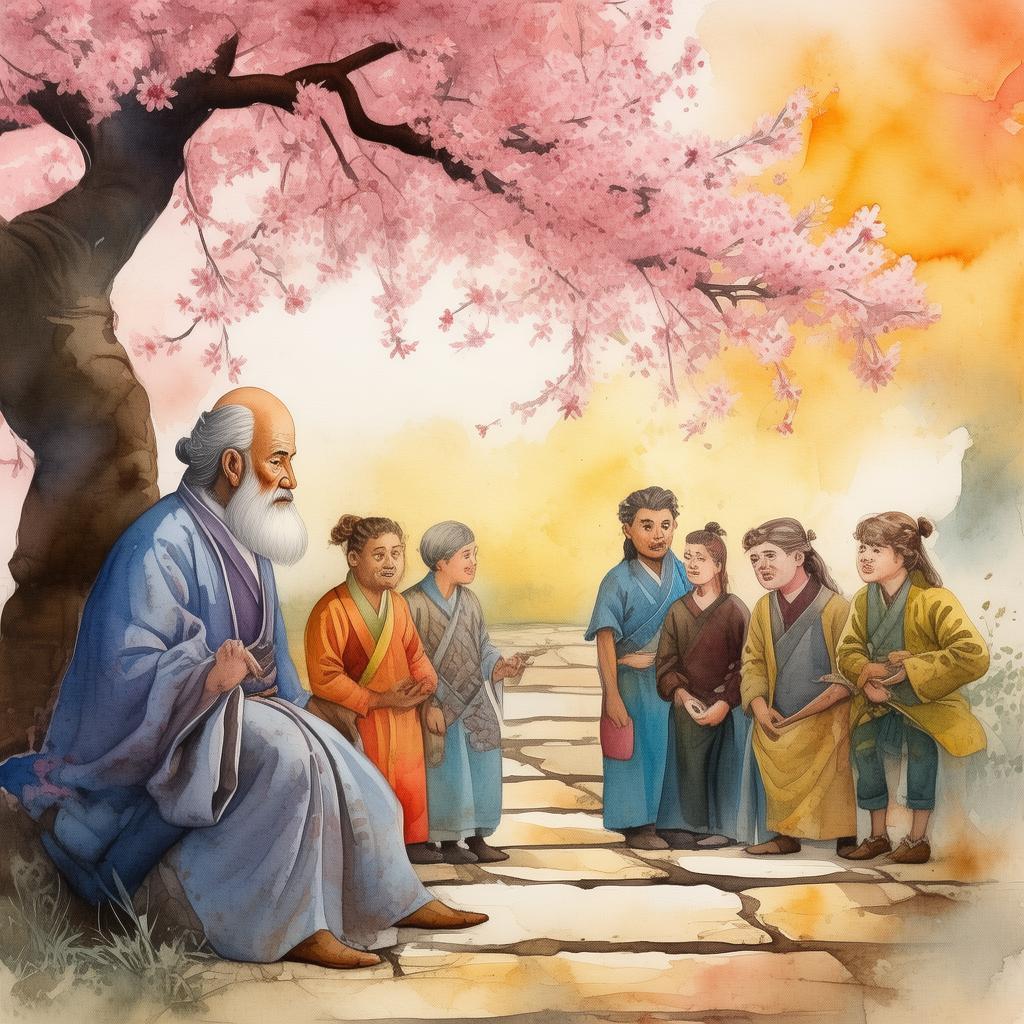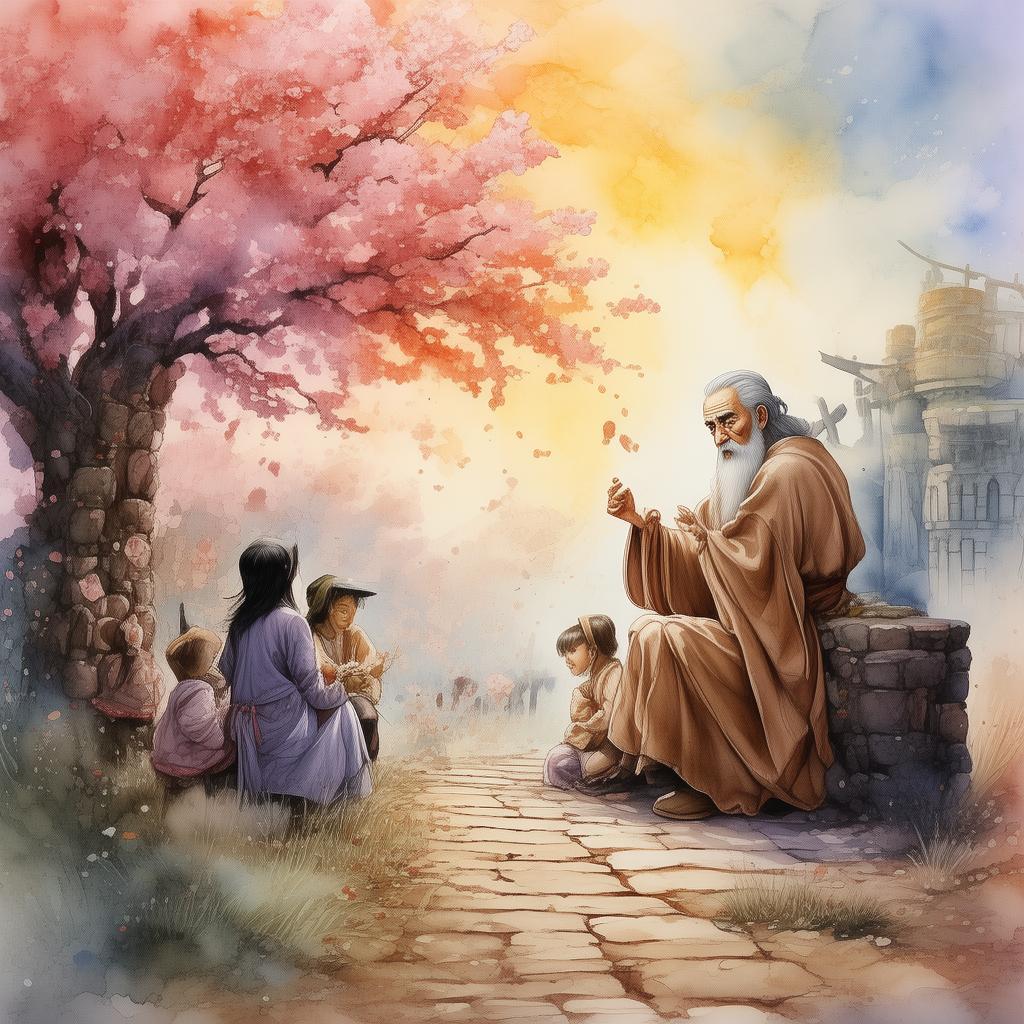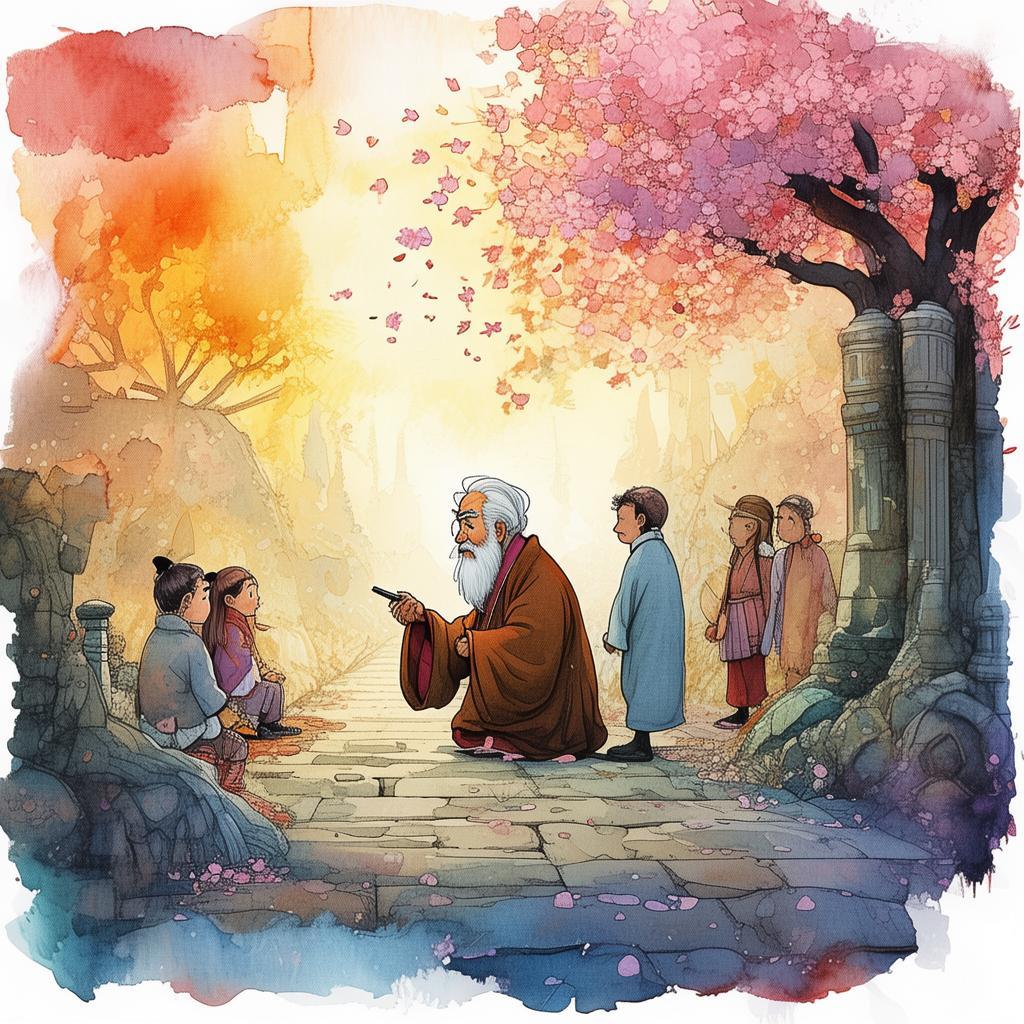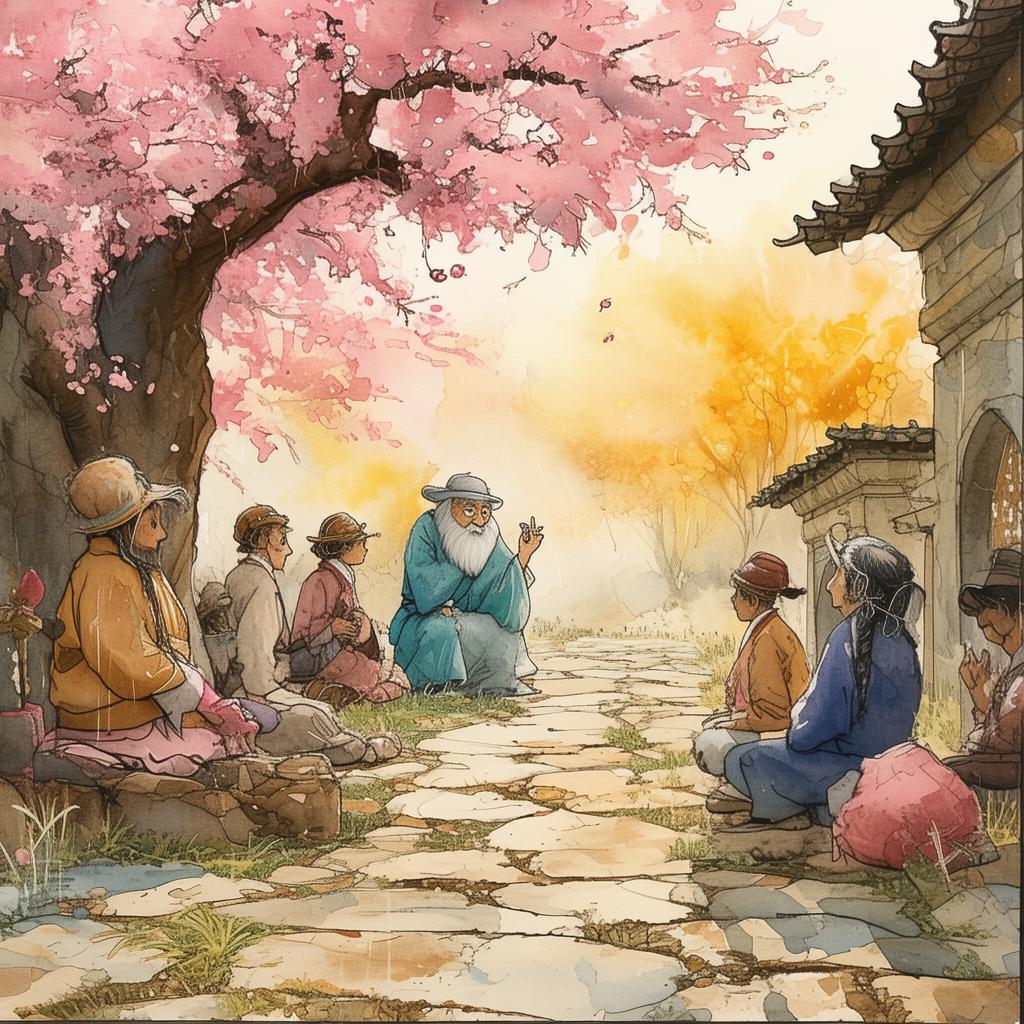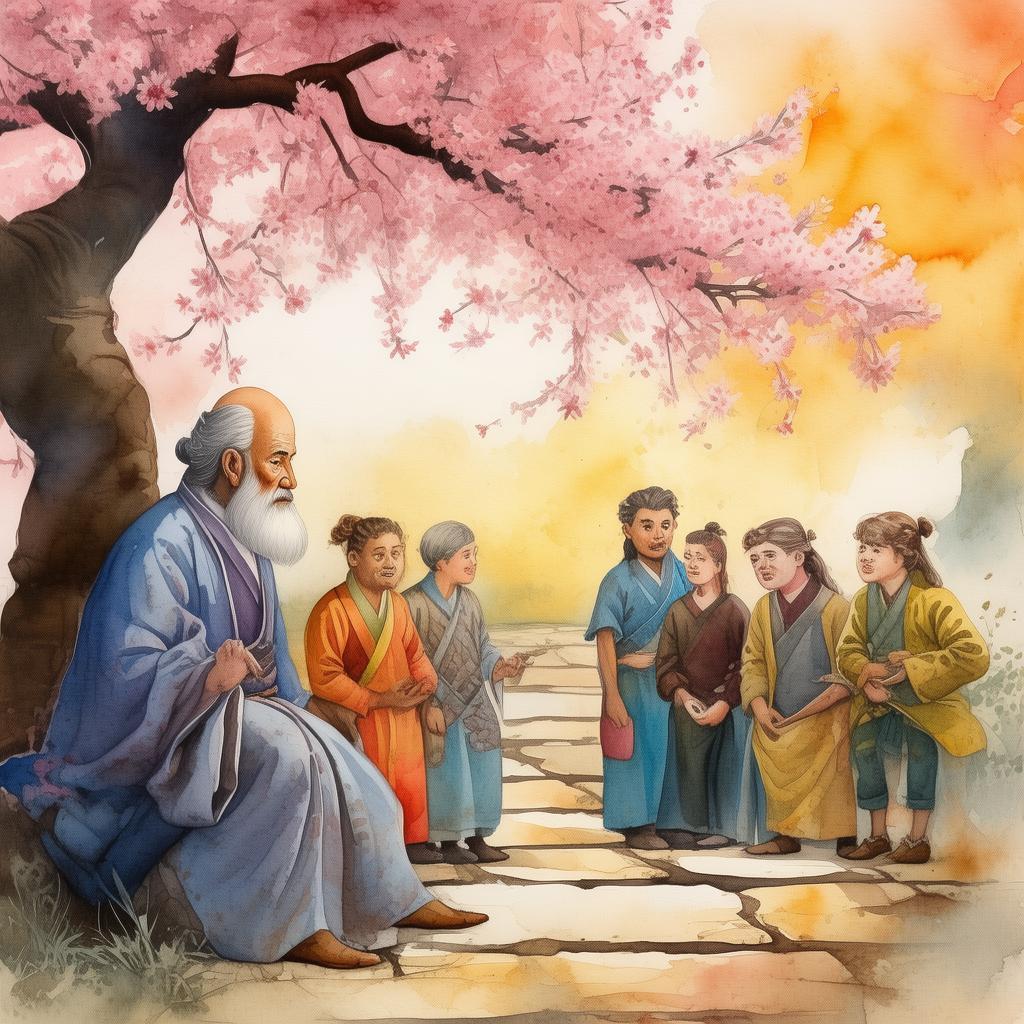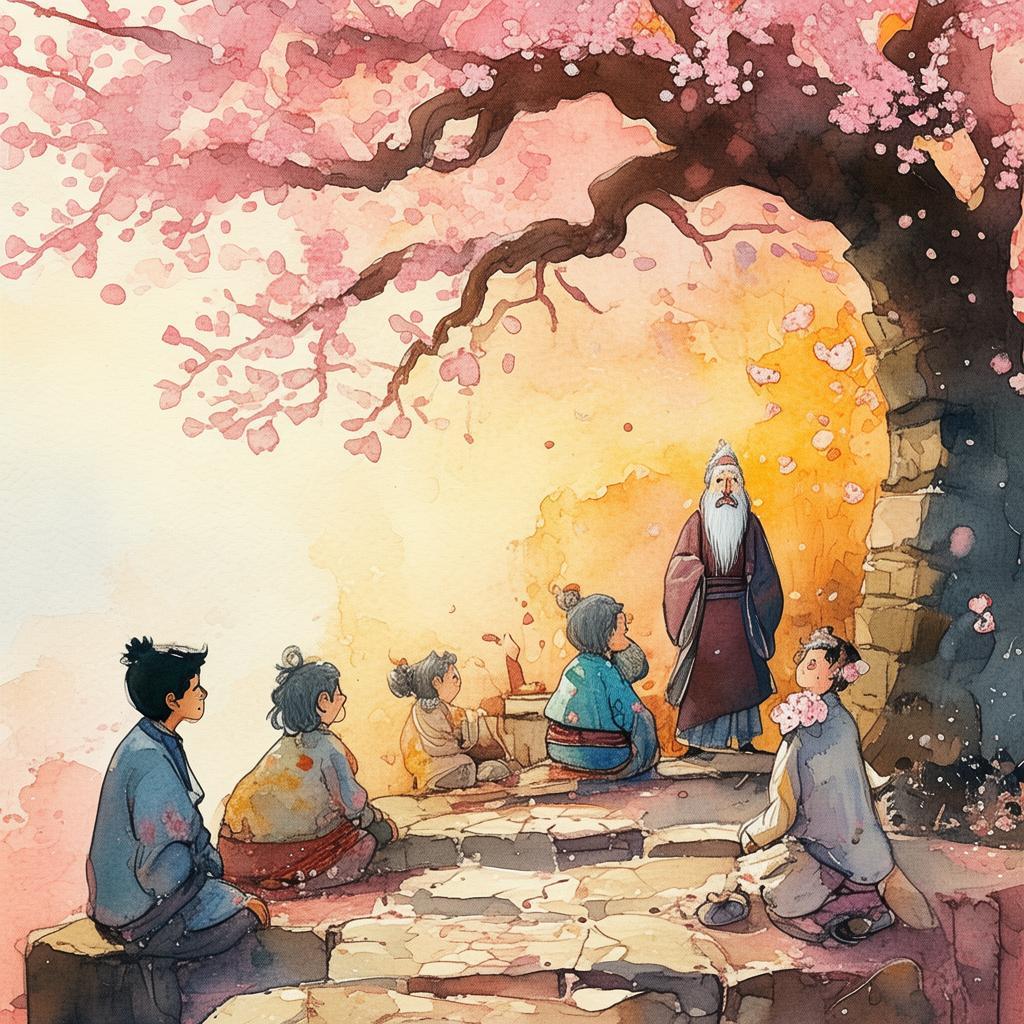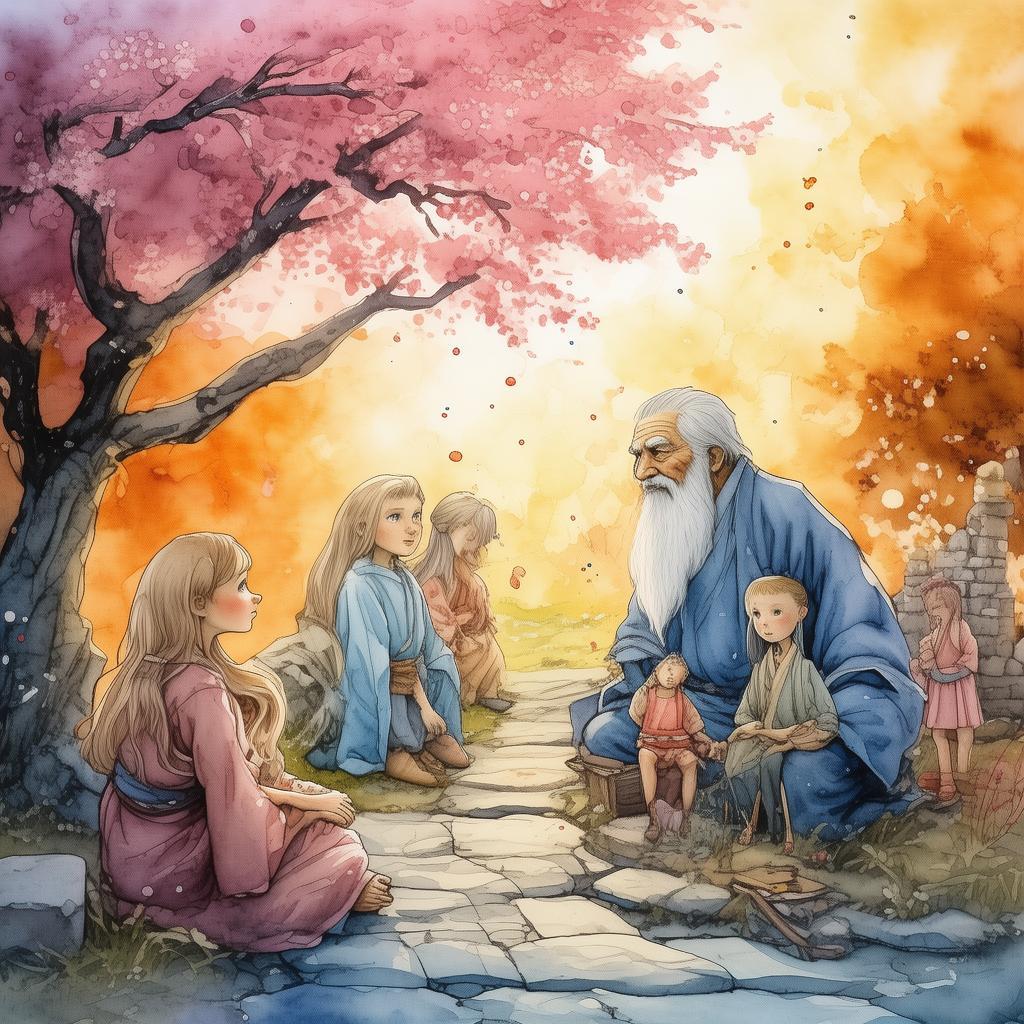Whispers of the Sage: A Quest for Enlightenment
In the heart of the ancient city of Lingtang, there stood a revered library, its walls adorned with scrolls of wisdom, each page etched with the timeless sayings of the sage Laozi. It was here that young Zhen, an eager student of philosophy, sought the ultimate truth of the world.
Zhen had heard tales of the sage's sayings scattered throughout the city, each one a beacon of enlightenment, yet none had fully illuminated his path. With a heart brimming with curiosity, he ventured into the library, his footsteps echoing on the stone floors.
The first saying he encountered was "The journey of a thousand miles begins with a single step." Zhen paused, reflecting on his own journey, feeling a sense of resolve. He knew that the path to wisdom was long and fraught with challenges, but this saying gave him hope.
As Zhen delved deeper into the library, he stumbled upon another saying: "Know the enemy and know yourself; in a hundred battles, you will never be defeated." This caught his attention, for it spoke of strategy and self-awareness. He resolved to learn not just the wisdom of others but also to understand his own mind and emotions.
Zhen's quest led him to the ancient gardens outside the city, where the sage had once walked. He spent days meditating and reflecting, the words of the sage resonating within his soul. It was during one of these sessions that he found himself staring at a simple stone path.
The path was clear, yet Zhen noticed a discrepancy: the path on one side was well-worn, while the other was untouched. He realized that this was a metaphor for life, where one must choose the path less traveled to truly discover the truth.
Zhen's journey continued as he met an old man, a hermit who lived in the forest. The hermit's wisdom was profound, and he imparted another saying: "The wise man knows he does not know." This revelation struck Zhen like a lightning bolt, making him realize that true enlightenment comes from humility and self-awareness.
One day, while exploring the forest, Zhen encountered a riddle posed by a mysterious figure: "What is it that is not alive, yet moves?" Zhen pondered this for days, but it was his teacher, Master Yuan, who finally guided him to the answer: it was the wind.
Master Yuan's words, "The wind blows where it will," served as a further revelation to Zhen. He understood that wisdom is like the wind; it cannot be grasped, but one can feel its presence and let it guide one's actions.
As Zhen continued his journey, he encountered a series of trials that tested his resolve and understanding of the sage's sayings. He faced the challenge of balancing his own desires with the needs of others, and he learned that true wisdom lies in compassion and empathy.
One night, Zhen found himself lost in the forest. He wandered for hours, until he heard the sound of water trickling nearby. He followed the sound, and eventually, he stumbled upon a serene pond. It was here that he saw his reflection, and for the first time, he felt a deep sense of peace.
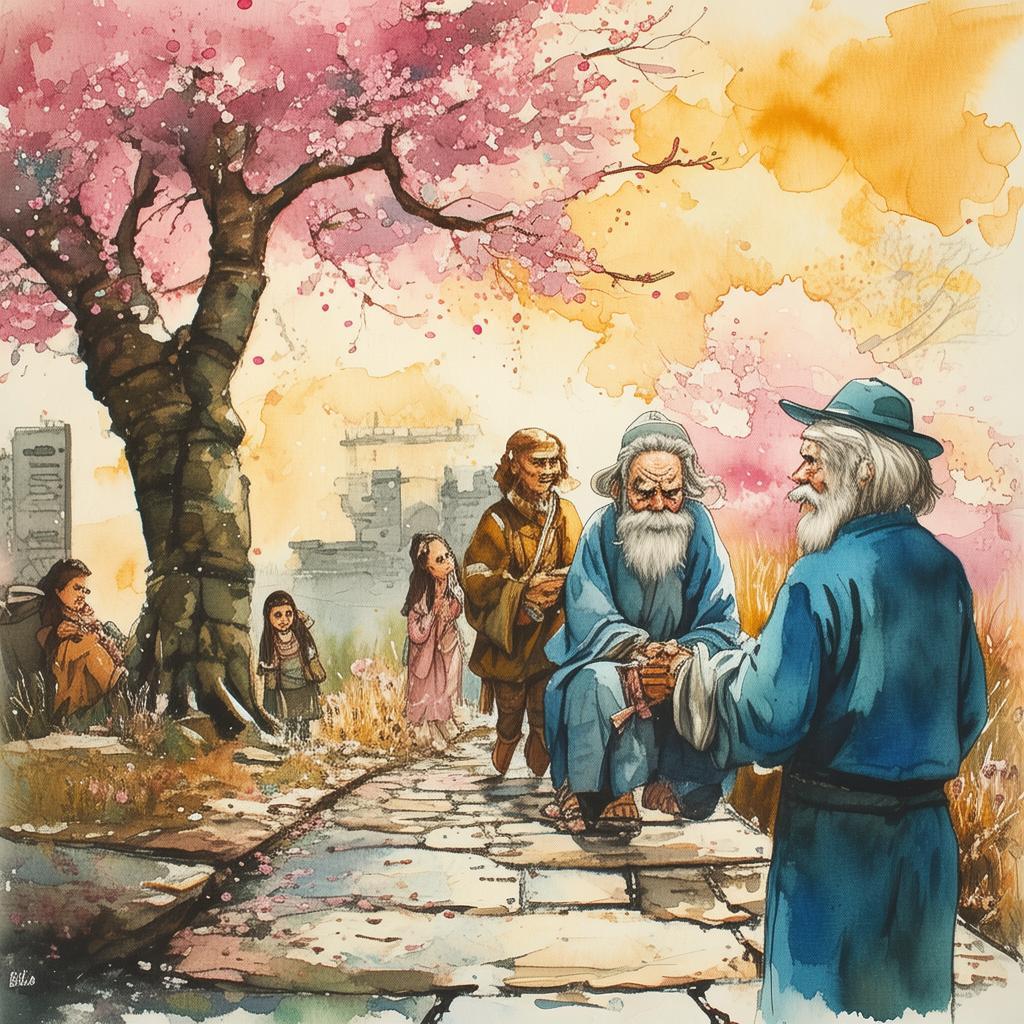
Zhen realized that the path to enlightenment was not about seeking answers but about understanding the questions themselves. It was about embracing the unknown and trusting the journey.
Finally, as the sun began to set, Zhen arrived back at the library, his heart filled with newfound clarity. He knew that the sage's sayings were not just words on a page but tools to guide him through life's myriad challenges.
In the end, Zhen returned to the city, not as a student of philosophy, but as a guide, sharing the wisdom he had gained with those who sought it. His journey was not about finding answers, but about uncovering the truths within himself.
And so, the legend of Zhen spread throughout the land, inspiring countless others to embark on their own quest for enlightenment. The sayings of the sage, once hidden away in ancient scrolls, were now a living testament to the wisdom that could be found within the depths of the human soul.
In the heart of the ancient city of Lingtang, there stood a revered library, its walls adorned with scrolls of wisdom, each page etched with the timeless sayings of the sage Laozi. It was here that young Zhen, an eager student of philosophy, sought the ultimate truth of the world.
Zhen had heard tales of the sage's sayings scattered throughout the city, each one a beacon of enlightenment, yet none had fully illuminated his path. With a heart brimming with curiosity, he ventured into the library, his footsteps echoing on the stone floors.
The first saying he encountered was "The journey of a thousand miles begins with a single step." Zhen paused, reflecting on his own journey, feeling a sense of resolve. He knew that the path to wisdom was long and fraught with challenges, but this saying gave him hope.
As Zhen delved deeper into the library, he stumbled upon another saying: "Know the enemy and know yourself; in a hundred battles, you will never be defeated." This caught his attention, for it spoke of strategy and self-awareness. He resolved to learn not just the wisdom of others but also to understand his own mind and emotions.
Zhen's quest led him to the ancient gardens outside the city, where the sage had once walked. He spent days meditating and reflecting, the words of the sage resonating within his soul. It was during one of these sessions that he found himself staring at a simple stone path.
The path was clear, yet Zhen noticed a discrepancy: the path on one side was well-worn, while the other was untouched. He realized that this was a metaphor for life, where one must choose the path less traveled to truly discover the truth.
Zhen's journey continued as he met an old man, a hermit who lived in the forest. The hermit's wisdom was profound, and he imparted another saying: "The wise man knows he does not know." This revelation struck Zhen like a lightning bolt, making him realize that true enlightenment comes from humility and self-awareness.
One day, while exploring the forest, Zhen encountered a riddle posed by a mysterious figure: "What is it that is not alive, yet moves?" Zhen pondered this for days, but it was his teacher, Master Yuan, who finally guided him to the answer: it was the wind.
Master Yuan's words, "The wind blows where it will," served as a further revelation to Zhen. He understood that wisdom is like the wind; it cannot be grasped, but one can feel its presence and let it guide one's actions.
As Zhen continued his journey, he encountered a series of trials that tested his resolve and understanding of the sage's sayings. He faced the challenge of balancing his own desires with the needs of others, and he learned that true wisdom lies in compassion and empathy.
One night, Zhen found himself lost in the forest. He wandered for hours, until he heard the sound of water trickling nearby. He followed the sound, and eventually, he stumbled upon a serene pond. It was here that he saw his reflection, and for the first time, he felt a deep sense of peace.
Zhen realized that the path to enlightenment was not about seeking answers but about understanding the questions themselves. It was about embracing the unknown and trusting the journey.
Finally, as the sun began to set, Zhen arrived back at the library, his heart filled with newfound clarity. He knew that the sage's sayings were not just words on a page but tools to guide him through life's myriad challenges.
In the end, Zhen returned to the city, not as a student of philosophy, but as a guide, sharing the wisdom he had gained with those who sought it. His journey was not about finding answers, but about uncovering the truths within himself.
And so, the legend of Zhen spread throughout the land, inspiring countless others to embark on their own quest for enlightenment. The sayings of the sage, once hidden away in ancient scrolls, were now a living testament to the wisdom that could be found within the depths of the human soul.
✨ Original Statement ✨
All articles published on this website (including but not limited to text, images, videos, and other content) are original or authorized for reposting and are protected by relevant laws. Without the explicit written permission of this website, no individual or organization may copy, modify, repost, or use the content for commercial purposes.
If you need to quote or cooperate, please contact this site for authorization. We reserve the right to pursue legal responsibility for any unauthorized use.
Hereby declared.
